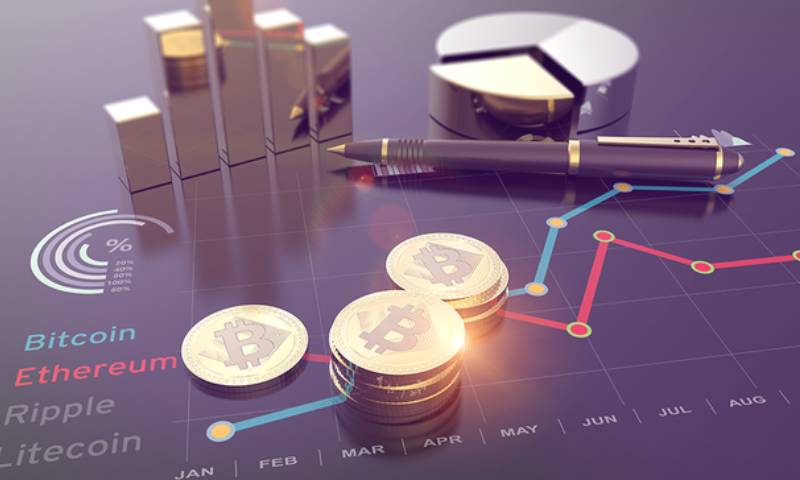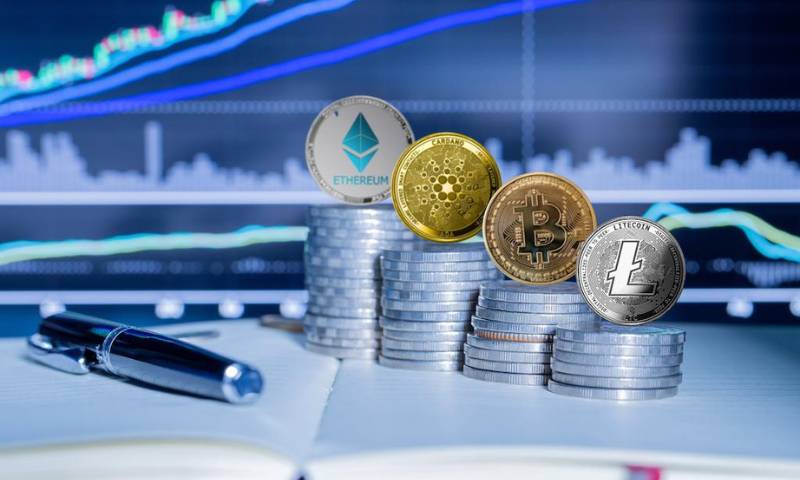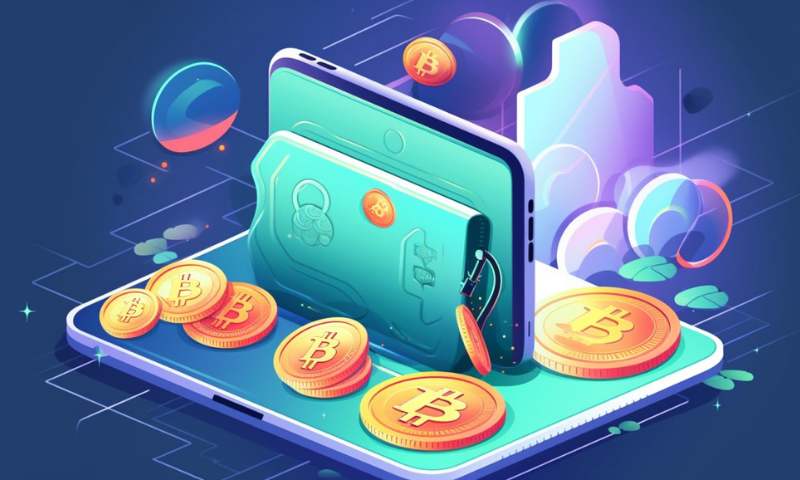Starting in the world of digital currency can feel like landing on a new planet. Good news: I’m here to be your guide through the maze of crypto tools for dummies. Let’s kick confusion to the curb! Today, we’ll unlock the secrets of blockchain and cryptocurrency that have been baffling beginners worldwide. Looking to set up a crypto wallet or venture into safe trading? I’ve got you! And when it’s time to grow your know-how with altcoins, smart contracts, and NFTs, you’ll have a front-row seat. Stick around and let’s navigate these digital finance realms together, one simple step at a time.
Understanding the Essentials of Cryptocurrency and Blockchain
Cryptocurrency Basics for Beginners
Cryptocurrency can seem like a puzzle. But don’t worry. I’m here to help you crack it. Picture cryptocurrency as online money. Unlike dollars in your wallet, you keep it in a digital wallet.
Now, what drives a lot of folks to crypto? Freedom. Yes, freedom from banks. You hear words like “Bitcoin” and wonder what’s that? Simply, Bitcoin is the first cryptocurrency. It made waves for good reason. People like how it works without a bank.
Are you keen on starting with Bitcoin? Great! But hold up. First, you must grasp the exchange concept. Think of it as a virtual marketplace. They let you buy or sell your digital cash. Understanding this is crucial. It leads to smarter, safer moves in the crypto world.
Blockchain Technology Explained
Blockchain is the backbone of cryptocurrency. It’s like a super smart ledger that never forgets. Every transaction, every swap of crypto, gets locked in. Forever. And it’s not just locked in one place. It’s shared across thousands of computers. This makes it super tough to hack.
Why should you care, though? Trust. With blockchain, trust is built-in. You don’t need a middleman to tell you it’s all good. You can see it yourself. Every player in the game can.
Are you itching to dig deeper into blockchain? There’s more to it than trust. Blockchains store info in blocks. Think of each block as a page in a ledger. Once full, it locks down and joins a chain of older pages. Hence the name ‘blockchain.’
To sum up, you’ve got “cryptocurrency,” the digital bucks, and “blockchain,” the ironclad ledger. Wrap your head around these, and you’ll be set for a grand crypto adventure. Keep learning, and soon you’ll be the one explaining the digital currency fundamentals to others, with the same ease as chatting about the latest movie or game!
Next, we’ll get our hands dirty (metaphorically) by setting up a secure home for your digital treasure and ensuring it’s locked down tight. Your journey into the digital finance realm is just beginning, and I’m here to guide you through every click.
Setting Up Your Crypto Wallet and Securing Your Investments
Simple Crypto Wallet Setup
First things first, you’ll need a crypto wallet. Think of it as a digital pocket for your virtual coins. Let’s break it down. A wallet has keys: one public, one private. The public key is like an address others use to send you crypto. Keep your private key a secret; it’s how you get to your coins.
Got it? Good. Now let’s set one up. Find a trusted wallet app. There are many out there. Pick one that fits your needs. Read reviews and check its security features. Once you download the app, create your wallet. It will make a new private key for you. Write this down and keep it safe. Nobody else should know your private key. Ever.
After you note down your private key, the wallet will give you a recovery phrase. It’s a list of words that lets you access your coins if your device is lost. Like your private key, keep this phrase safe and secret. You’re now ready to receive and send cryptocurrency.
Securing Digital Assets with Smart Practices
Have your wallet? Great. Security is next. You want to keep your digital cash safe, just like real money. Let’s talk about two-factor authentication (2FA). It’s a way to make sure it’s really you trying to get into your wallet. Always turn on 2FA. It will ask for a code from your phone when you log into your wallet. This stops people who are not you from getting in.
Keep your software up to date. Wallet updates have fixes for security issues that could be bad for your crypto. It’s like a fence that gets stronger with each new update. Another tip: use a hardware wallet if you can. It’s a device that stores your private keys offline. This means even if someone hacks your computer, your crypto stays safe.
Stay sharp and watch for scams. If something looks too good to be true, it probably is. Scammers might promise big returns if you give them crypto. Don’t fall for it. Only send crypto to people and places you trust. And there’s no such thing as easy money. Remember that.
So now you know how to set up your wallet and keep your crypto safe. Simple, right? Take it slow, and double-check everything. Your peace of mind is worth that little bit of extra time. With your wallet set up and secured, you’re ready to start exploring the world of digital currency. Welcome to the future of money!
Navigating the Cryptocurrency Markets: Trading and Exchanges
Basic Crypto Trading Strategies for New Investors
Jumping into crypto markets can be fun. It’s like diving into a digital treasure hunt. You’ve heard about Bitcoin and how prices swing up and down. That’s the market at work. There’s a simple way to get started with trading cryptos. First, you need to know the cryptocurrency basics for beginners. This means learning what cryptos are, how they work, and why they’re special.
Bitcoin is the first digital currency you should learn about. It’s like the king of cryptos and has been around the longest. Starting with Ethereum is smart too. It’s like Bitcoin’s younger sibling but with extra tricks, like smart contracts that work like robot lawyers.
When you trade, you want to buy low and sell high. This might sound easy, but it takes practice and some studying. Have a plan, and don’t let your heart rule your wallet. Also, don’t put all your money into one crypto. It’s safer to spread it out. This is what we call diversifying your portfolio.
Navigating Crypto Exchanges Safely and Efficiently
Now, let’s talk about where you can trade these digital coins – the crypto exchanges. They’re like online markets where cryptos are bought and sold. Think of it as a giant virtual shopping mall for digital money. Navigating crypto exchanges doesn’t have to be hard.
You need to pick the right place to trade. Look for exchanges that are easy to understand—if they’re too tricky, you might want to look elsewhere. Security is super important too. Always use exchanges that have good safety features like 2-factor authentication. This means you use your password and something else, like a message on your phone, to get in. It’s like a double lock on your digital door.
Some other quick tips for crypto newbies:
- A simple crypto wallet setup is like picking the right backpack for a hike. Make sure it’s secure and suits your needs.
- Setting up two-factor authentication is like teaching your wallet to recognize your voice.
- Understand that losing your private key is like losing the key to a treasure chest. Keep it safe!
- Recognizing crypto scams can save you from crypto pirates. Learn to spot these tricks to protect your coins.
- Lastly, learning about ICOs, which are like crypto kickstarters, can open new doors. But walk in with your eyes wide open.
Cryptocurrency platforms for newbies are out there to help you understand and trade without getting lost. Trusted crypto apps for starters can keep you informed. Use them to stay on top of the market like a captain steering a ship through stormy seas.
Remember, every investor was a beginner once. With time, you’ll get better at understanding crypto and making wise trades. Keep your coins safe, use the right tools, and keep learning every day. The digital finance world is yours to explore!
Expanding Your Knowledge: Altcoins, Smart Contracts, and NFTs
Starting with Ethereum and Altcoins for Beginners
You have heard of Bitcoin, right? But what about Ethereum and altcoins? Ethereum is like Bitcoin’s cousin. It’s a huge deal in the crypto world. Altcoins are all the other coins that are not Bitcoin. They’re like the new kids on the block. Each one is different and special in its way.
Let’s start with Ethereum. It’s more than just money. It’s like a giant computer that the whole world can use. People make apps on Ethereum. These apps can move money, create deals, and even make games. It’s a place where smart contracts live. What’s a smart contract? It’s a promise, like a real contract, but it runs by itself on Ethereum. No one can mess with it; it always does what it’s told.
Next up, altcoins. There are tons of them! Coins like Litecoin, Ripple, and many more. Each one has its own story. Some are super fast to send. Some give you privacy. Some are even green and help the planet. Starting your journey into altcoins is fun. Just do your homework – learn as much as you can before diving in.
Intro to DeFi and NFT Basics for the Unskilled
Now, let’s jump into DeFi. That stands for Decentralized Finance. Sounds fancy, huh? It’s not that tricky. Imagine all the things banks do. Now imagine there’s no bank. That’s DeFi. You can lend money, borrow, save, all without a middleman. It’s like a money playground, all on the blockchain.
And what about NFTs? Think of them as collectible digital art. Each NFT is one of a kind, like a rare baseball card, but for the internet. They can be anything digital – drawings, music, even tweets! They’re a hit because they let artists sell their work in a new way.
Learning this stuff is a big step. It’s like unlocking a secret level in a game. It’s important to use trusted sources to understand it all. My tip for you is to take your time. This isn’t a race. Dig into articles, watch some videos, and when you’re ready, maybe try a little bit of investing. Just remember to keep it safe. Set up two-factor authentication on your accounts. This makes sure it’s really you when you log in.
The world of crypto is vast and full of wonders. Starting with Ethereum and altcoins, diving into DeFi, and exploring NFTs is the beginning of an exciting adventure. Just be sure to move carefully and never stop learning. Who knows what you’ll discover?
We dived deep into the crypto world together. Starting with the basics, we uncovered what cryptocurrency is and how blockchain works. It’s like a digital form of money that uses special tech to keep it safe and secure.
Next, we tackled how to set up your own crypto wallet and keep your digital coins safe. Think of it as setting up a super-secure digital piggy bank. No one wants to lose their money because they didn’t lock the door, right?
Then, we hit the crypto market streets, learning how to trade and use exchanges without getting lost or tricked. It’s like going shopping, but for digital money, and knowing how to find the best deals safely.
Finally, we explored the exciting world of altcoins, smart contracts, and NFTs. It’s like discovering new toys in the crypto playground, with Ethereum leading the pack.
So there you have it! Embrace the journey and keep learning. With these tips and your growing know-how, the crypto world isn’t so complex. It’s an adventure, and you’re ready to explore. Remember, you’ve got the map—now go find your treasure!
Q&A :
What are the essential crypto tools for a beginner?
Starting out in the world of cryptocurrency can be overwhelming, but certain tools can simplify your journey. Essential crypto tools for beginners include a secure hardware wallet for storing digital assets, a reliable cryptocurrency exchange for trading, a portfolio tracker to monitor investments, and basic chart analysis software to understand market trends. Utilizing these tools will help mitigate risks and inform better investment decisions.
How do I choose the right crypto wallet for my needs?
Choosing the right crypto wallet is a key decision for any beginner. Factors to consider include the type of cryptocurrencies you plan to hold, the level of security you require, and whether you prefer accessibility or cold storage. Hardware wallets provide robust security, while software wallets on smartphones or desktops offer convenience and easy access.
What should I look for in a cryptocurrency exchange?
For dummies looking to engage with cryptocurrency exchanges, it’s important to consider factors such as security measures, user-friendliness, fees, and the range of available cryptocurrencies. It’s also wise to check if the exchange is compliant with regulations and if it has a good track record in the community. Beginners may prefer exchanges that offer educational resources and customer support.
Can you recommend any resources for learning basic crypto trading analysis?
Yes, there are many resources available for newbies looking to grasp basic crypto trading analysis. Online platforms like CryptoCompare or CoinMarketCap provide valuable data and insights. Moreover, many exchanges and crypto education websites offer tutorials on reading and interpreting charts, spotting trends, and applying technical indicators.
Are there any free crypto tools suitable for beginners?
Certainly! There are several free crypto tools that are perfect for those just starting out. These include wallets like Exodus or MyEtherWallet, exchanges with demo accounts for practice trading, and apps like Blockfolio or Delta for portfolio tracking. Additionally, resources like TradingView offer free basic chart analysis capabilities suitable for learning the ropes of crypto trading.






